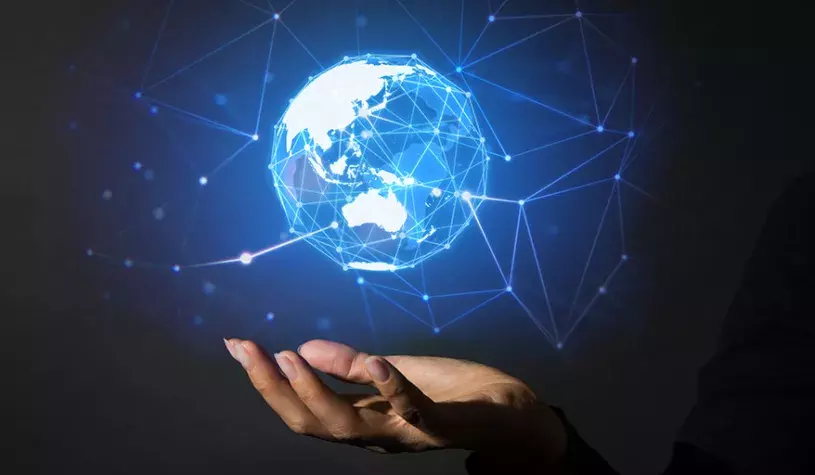Error message

By Suzanne Vares-Lum, East-West Center President &
Charles E. Morrison, former EWC President, current Senior Fellow
This commentary first appeared in The Honolulu Star-Advertiser on Jan. 7, 2024.
While conflicts in the Middle East and Ukraine overshadow world events at the onset of 2024, in the longer term the Indo-Pacific region remains by far the most important part of the world for global peace and prosperity. With more than 40 countries and 60 percent of world population, the Indo-Pacific is still the epicenter of global growth, and no other region offers more opportunities, as well as challenges, for the United States.
Of the region’s many issues in this coming year, three stand out for us. The first is what 2024 might tell us about the direction of the world’s second-most powerful country, China. It appears to have reached an important crossroads, facing significant economic and political headwinds. The Chinese economy failed to rebound vigorously from the pandemic; consumer and investment confidence is anemic; and young people are having trouble finding rewarding jobs. Global public opinion surveys, meanwhile, show increasing international anxiety over China's more aggressive foreign policy and security policies.
All these forces may have influenced Xi Jinping to seek more stable relations with the U.S. in his November meeting with President Biden, but the question is how much this is a tactical move rather than being part of a sustained strategy. An early test may be Beijing's response to the Taiwan presidential election on January 13.
China regards Taiwan’s ruling Democratic Progressive Party as being bent on formal independence. If the DPP candidate, current Vice President Lai Ching-te, wins as widely anticipated, Xi may be tempted to increase provocations leading up to Lai’s inauguration in May as a way to cow the new leader. However, this move would not only strengthen resentment toward the mainland in Taiwan but increase tensions with the United States and further alarm potential investors, dealing yet another blow to the Chinese economy.
The second key issue is the global future of democracy and its essential building block, a free and trustworthy press. More than 50 countries around the world have elections scheduled in 2024, a new record. Meanwhile here at home, fundamental issues of American policy hang in the balance of our own presidential election in November.
A primary concern amid so much potential global political change is the explosion of disinformation enhanced by artificial intelligence’s ability to reinforce biases.
This is especially troubling with research suggesting an ongoing erosion of faith in democratic institutions and media worldwide. The East-West Center has long tracked such issues through our diverse journalism programs, and we’ll be exploring them further at our biennial International Media Conference on “The Future of Facts” this summer in Manila, a regional hot spot at the intersection of democracy and media.
Finally, there is the pressing challenge of climate change, which is especially acute for the Pacific Islands—not just because of sea level rise, an existential threat to low-lying atolls, but also more frequent violent storms, prolonged droughts, and ocean acidification. For island communities at risk, this past month's UN climate summit in Dubai was a mixed blessing. The goal of transitioning away from fossil fuels was formally recognized, and developed countries pledged increased support for adaptation efforts in smaller and less wealthy states. But so far, major emitters have not made the policy changes needed to contain temperature rise to the goal of 1.5 degrees centigrade.
We deeply believe that Hawai‘i has a special responsibility in the Pacific, with similar heritage and challenges coupled with a state economy that is more than double that of all developing Pacific Islands economies combined. Hawai‘i institutions can help provide needed analysis on how climate change will affect the island environments and economies, assist in developing climate adaptation strategies, and train local experts.
Whatever else is happening in the world, the United States certainly cannot afford to take its eye off the Indo-Pacific region. As Star-Advertiser reporter (and EWC media program alum) Kevin Knodell wrote his recent article “Hawaii Playing a Part in the Pacific Century,” the East-West Center and other locally based educational and policy institutions will continue to play a vital role as bridges to the region and standard bearers of Hawai‘i's engagement in the Indo-Pacific.
Image: Yuichiro Chino/Getty Images
By Suzanne Vares-Lum, East-West Center President &
Charles E. Morrison, former EWC President, current Senior Fellow
This commentary first appeared in The Honolulu Star-Advertiser on Jan. 7, 2024.
While conflicts in the Middle East and Ukraine overshadow world events at the onset of 2024, in the longer term the Indo-Pacific region remains by far the most important part of the world for global peace and prosperity. With more than 40 countries and 60 percent of world population, the Indo-Pacific is still the epicenter of global growth, and no other region offers more opportunities, as well as challenges, for the United States.
Of the region’s many issues in this coming year, three stand out for us. The first is what 2024 might tell us about the direction of the world’s second-most powerful country, China. It appears to have reached an important crossroads, facing significant economic and political headwinds. The Chinese economy failed to rebound vigorously from the pandemic; consumer and investment confidence is anemic; and young people are having trouble finding rewarding jobs. Global public opinion surveys, meanwhile, show increasing international anxiety over China's more aggressive foreign policy and security policies.
All these forces may have influenced Xi Jinping to seek more stable relations with the U.S. in his November meeting with President Biden, but the question is how much this is a tactical move rather than being part of a sustained strategy. An early test may be Beijing's response to the Taiwan presidential election on January 13.
China regards Taiwan’s ruling Democratic Progressive Party as being bent on formal independence. If the DPP candidate, current Vice President Lai Ching-te, wins as widely anticipated, Xi may be tempted to increase provocations leading up to Lai’s inauguration in May as a way to cow the new leader. However, this move would not only strengthen resentment toward the mainland in Taiwan but increase tensions with the United States and further alarm potential investors, dealing yet another blow to the Chinese economy.
The second key issue is the global future of democracy and its essential building block, a free and trustworthy press. More than 50 countries around the world have elections scheduled in 2024, a new record. Meanwhile here at home, fundamental issues of American policy hang in the balance of our own presidential election in November.
A primary concern amid so much potential global political change is the explosion of disinformation enhanced by artificial intelligence’s ability to reinforce biases.
This is especially troubling with research suggesting an ongoing erosion of faith in democratic institutions and media worldwide. The East-West Center has long tracked such issues through our diverse journalism programs, and we’ll be exploring them further at our biennial International Media Conference on “The Future of Facts” this summer in Manila, a regional hot spot at the intersection of democracy and media.
Finally, there is the pressing challenge of climate change, which is especially acute for the Pacific Islands—not just because of sea level rise, an existential threat to low-lying atolls, but also more frequent violent storms, prolonged droughts, and ocean acidification. For island communities at risk, this past month's UN climate summit in Dubai was a mixed blessing. The goal of transitioning away from fossil fuels was formally recognized, and developed countries pledged increased support for adaptation efforts in smaller and less wealthy states. But so far, major emitters have not made the policy changes needed to contain temperature rise to the goal of 1.5 degrees centigrade.
We deeply believe that Hawai‘i has a special responsibility in the Pacific, with similar heritage and challenges coupled with a state economy that is more than double that of all developing Pacific Islands economies combined. Hawai‘i institutions can help provide needed analysis on how climate change will affect the island environments and economies, assist in developing climate adaptation strategies, and train local experts.
Whatever else is happening in the world, the United States certainly cannot afford to take its eye off the Indo-Pacific region. As Star-Advertiser reporter (and EWC media program alum) Kevin Knodell wrote his recent article “Hawaii Playing a Part in the Pacific Century,” the East-West Center and other locally based educational and policy institutions will continue to play a vital role as bridges to the region and standard bearers of Hawai‘i's engagement in the Indo-Pacific.
Image: Yuichiro Chino/Getty Images
East-West Wire
News, Commentary, and Analysis
The East-West Wire is a news, commentary, and analysis service provided by the East-West Center in Honolulu. Any part or all of the Wire content may be used by media with attribution to the East-West Center or the person quoted. To receive East-West Center Wire media releases via email, subscribe here.
For links to all East-West Center media programs, fellowships and services, see www.eastwestcenter.org/journalists.







